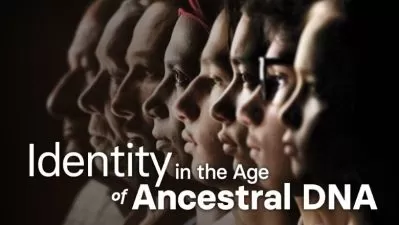Biology 101: Understanding the Building Blocks of Life
Wilfried V.
7:20:25
Description
Discovering the Fascinating World of Cellular Mechanisms and understanding Life’s Molecular Foundations
What You'll Learn?
- Identify and describe the four main types of macromolecules: proteins, carbohydrates, nucleotides, and lipids, and their roles in biological processes.
- Understand the structure and function of cellular components, including the cellular membrane, cytoplasm, organelles, and cytoskeleton structures.
- Compare and contrast aerobic and anaerobic cellular respiration, and explain their roles in energy production within cells.
- Explain the processes of mitosis and meiosis, their main differences, and their roles in cell division and reproduction.
- Describe the structure of DNA, its replication process, and the mechanisms of gene transcription and translation.
- Learn about genetic mutations, their causes & consequences, DNA repair importance, and oncogenes/tumor suppressors' relationship to cancer.
- Understand cellular behavior under stress, including apoptosis, and the role of cellular communication in maintaining homeostasis.
- Explain the concept of stem cells and their role in cellular differentiation and tissue regeneration.
- Recognize key biotechnology techniques and their applications in genetic engineering, gene therapy, and other areas of research.
- Understand genetics and evolution fundamentals, including Mendelian genetics, evolution patterns, and the survival mechanisms of microorganisms and plants.
- Explore the diversity and survival mechanisms of prokaryotes, fungi, and viruses, including their morphology, behavior, and classification.
- Describe plant anatomy and physiology, and explain the importance of photosynthesis and its mechanisms in energy production and plant growth.
Who is this for?
More details
DescriptionUniversity Biology 101: Understanding the Building Blocks of Life offers an engaging and comprehensive introduction to the fundamental principles of University Biology. This comprehensive course provides a deep dive into the fascinating world of biology, exploring the intricacies of life's molecular components and the remarkable cellular structures that make up all living organisms. Throughout this course, students will gain a solid foundation in the essential topics of biology, including:
1. Exploration of macromolecules: structure and functions of proteins, carbohydrates, nucleotides, and lipids, and their vital roles in maintaining life.
2. In-depth examination of cellular structures and functions: cellular membrane, cytoplasm, organelles, and cytoskeleton structures, as well as aerobic and anaerobic cellular respiration.
3. Cell cycle, mitosis and meiosis, DNA structure and replication, gene transcription and translation, and mechanisms behind genetic mutations and DNA repair.
4. Insights into the molecular basis of cancer, cellular behavior and communication, and stem cells and cellular differentiation.
5. Introduction to essential laboratory techniques: focus on biotechnology applications and their potential to advance our understanding of life.
6. Genetics and evolution: exploration of Mendelian genetics and the patterns that drive the evolution of life on Earth.
7. Investigation of the diverse world of microbiology: prokaryotes, bacterial survival strategies, fungi, and viruses.
8. Importance of plants and photosynthesis: examination of plant anatomy, physiology, and the mechanisms that enable these organisms to capture sunlight and convert it into energy.
Biology 101 provides a solid foundation for students with an interest in pursuing a career in the life sciences, as well as those who simply want to understand the remarkable processes that drive life on our planet. Join us on this captivating journey and develop a deeper appreciation for the incredible complexity and beauty of life's building blocks.
Who this course is for:
- FIRST-YEAR UNIVERSITY STUDENTS majoring or minoring in life sciences, such as biology, biochemistry, environmental science, or related fields, who require a comprehensive understanding of essential biological principles to build upon in their advanced courses.
- NON-SCIENCE MAJOR STUDENTS seeking to fulfill their science requirements and broaden their knowledge of the natural world by understanding the basic concepts of biology and its applications in daily life.
- HIGH SCHOOL GRADUATES with a background in basic biology, chemistry, and mathematics, who are looking to strengthen their knowledge and skills before enrolling in more specialized or advanced biology courses.
- ADULT LEARNERS AND PROFESSIONALS from non-biological backgrounds interested in exploring the world of biology, either for personal enrichment or as a prerequisite for pursuing further studies or careers in life sciences.
- ASPIRING RESEARCHERS, EDUCATORS, OR SCIENCE COMMUNICATORS aiming to deepen their understanding of core biological concepts, engage with current scientific debates, and convey complex information effectively to a wide range of audiences.
University Biology 101: Understanding the Building Blocks of Life offers an engaging and comprehensive introduction to the fundamental principles of University Biology. This comprehensive course provides a deep dive into the fascinating world of biology, exploring the intricacies of life's molecular components and the remarkable cellular structures that make up all living organisms. Throughout this course, students will gain a solid foundation in the essential topics of biology, including:
1. Exploration of macromolecules: structure and functions of proteins, carbohydrates, nucleotides, and lipids, and their vital roles in maintaining life.
2. In-depth examination of cellular structures and functions: cellular membrane, cytoplasm, organelles, and cytoskeleton structures, as well as aerobic and anaerobic cellular respiration.
3. Cell cycle, mitosis and meiosis, DNA structure and replication, gene transcription and translation, and mechanisms behind genetic mutations and DNA repair.
4. Insights into the molecular basis of cancer, cellular behavior and communication, and stem cells and cellular differentiation.
5. Introduction to essential laboratory techniques: focus on biotechnology applications and their potential to advance our understanding of life.
6. Genetics and evolution: exploration of Mendelian genetics and the patterns that drive the evolution of life on Earth.
7. Investigation of the diverse world of microbiology: prokaryotes, bacterial survival strategies, fungi, and viruses.
8. Importance of plants and photosynthesis: examination of plant anatomy, physiology, and the mechanisms that enable these organisms to capture sunlight and convert it into energy.
Biology 101 provides a solid foundation for students with an interest in pursuing a career in the life sciences, as well as those who simply want to understand the remarkable processes that drive life on our planet. Join us on this captivating journey and develop a deeper appreciation for the incredible complexity and beauty of life's building blocks.
Who this course is for:
- FIRST-YEAR UNIVERSITY STUDENTS majoring or minoring in life sciences, such as biology, biochemistry, environmental science, or related fields, who require a comprehensive understanding of essential biological principles to build upon in their advanced courses.
- NON-SCIENCE MAJOR STUDENTS seeking to fulfill their science requirements and broaden their knowledge of the natural world by understanding the basic concepts of biology and its applications in daily life.
- HIGH SCHOOL GRADUATES with a background in basic biology, chemistry, and mathematics, who are looking to strengthen their knowledge and skills before enrolling in more specialized or advanced biology courses.
- ADULT LEARNERS AND PROFESSIONALS from non-biological backgrounds interested in exploring the world of biology, either for personal enrichment or as a prerequisite for pursuing further studies or careers in life sciences.
- ASPIRING RESEARCHERS, EDUCATORS, OR SCIENCE COMMUNICATORS aiming to deepen their understanding of core biological concepts, engage with current scientific debates, and convey complex information effectively to a wide range of audiences.
User Reviews
Rating
Wilfried V.
Instructor's Courses
Udemy
View courses Udemy- language english
- Training sessions 26
- duration 7:20:25
- Release Date 2023/05/05










